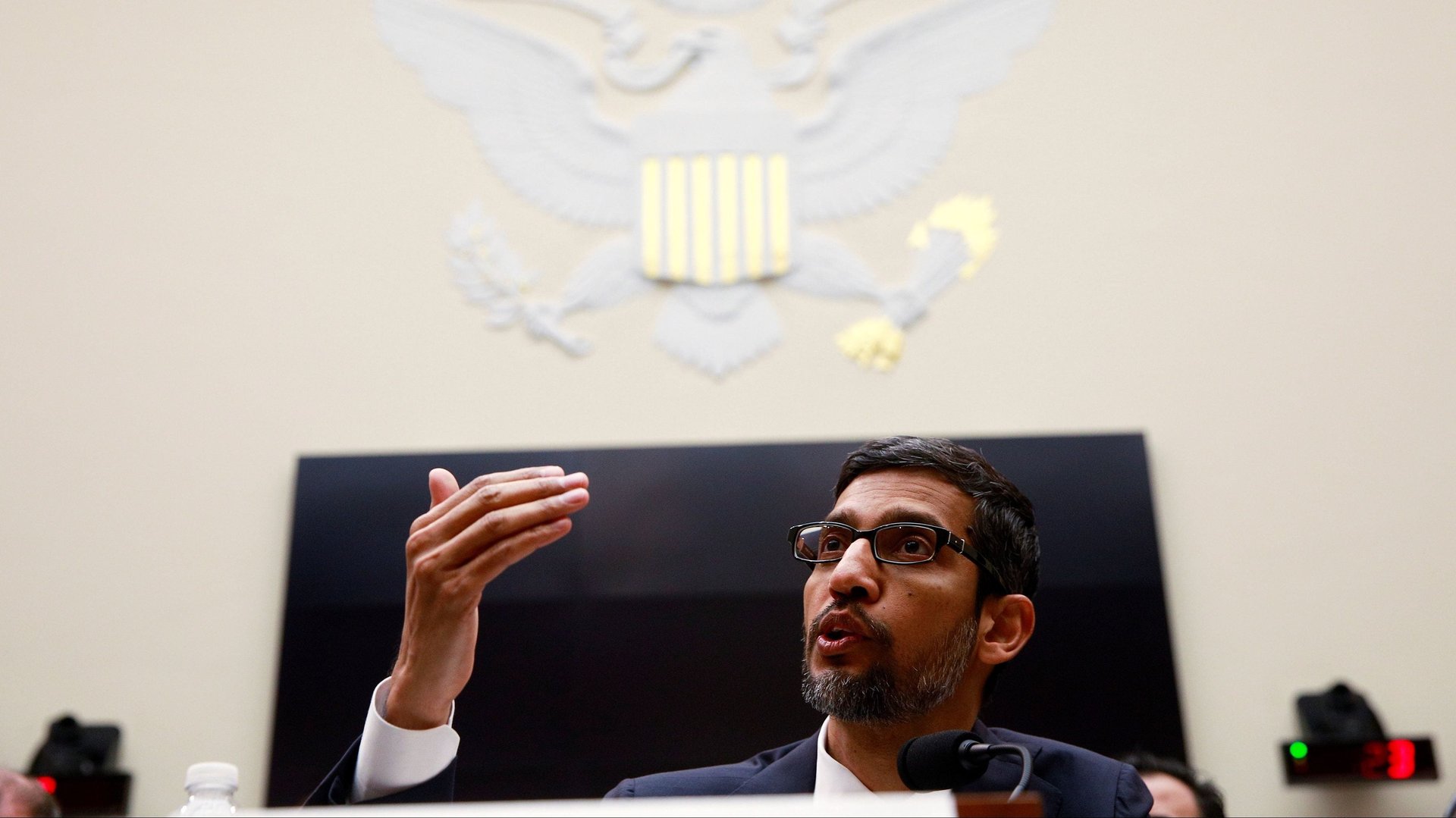Sundar Pichai leaves the door open to Google launching a censored search engine in China
Google CEO Sundar Pichai doesn’t have plans for the company to launch a censored search engine in China—for now, at least.


Google CEO Sundar Pichai doesn’t have plans for the company to launch a censored search engine in China—for now, at least.
Testifying before the House Judiciary Committee yesterday (Dec. 11), Pichai—the most recent tech giant leader to be grilled by US Congress—spent more than three hours answering questions about the search algorithm’s alleged political biases, user privacy, and its plans to re-enter China, among other issues.
Congresswoman Sheila Jackson Lee had clear reservations about Project Dragonfly—codename for a search engine Google has been working on that would comply with China’s censorship policies—saying it would “help censor a Chinese person seeking a lifeline of democracy and freedom.” When she asked him about the prospect of Google re-entering China, the Google chief carefully chose his words. “Right now, we have no plans to launch in China,” he responded.
By hedging with the phrase “right now,” Pichai, who was speaking under oath, left open the possibility of launching such a search engine at a later point in the future.
Here is Pichai’s full answer to Jackson Lee:
Right now, we have no plans to launch in China. We don’t have a search product there. Our core mission is to provide users access to information and getting access to information is an important human right, so we are always compelled across the world to try hard to provide that information, and but right now there are no plans to launch search in China. I’m committed to being fully transparent, including with policy makers, to the extent if we ever develop plans to do that.
News of Project Dragonfly first came to light this summer when The Intercept reported on confidential documents leaked by an anonymous Google employee. The report noted that the search engine’s plans were accelerated after Pichai—who had publicly stated before he wanted the company to serve all users, including those in China—met with a top Chinese official in 2017.
Since its revelation, more than 1,400 Google employees have objected to Project Dragonfly, and two weeks ago about 700 employees signed an open letter to the company that said “[p]roviding the Chinese government with ready access to user data, as required by Chinese law, would make Google complicit in oppression and human rights abuses.”